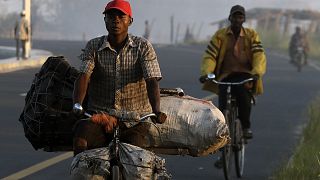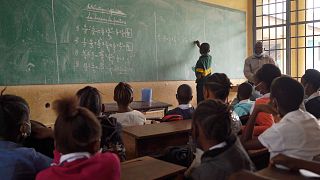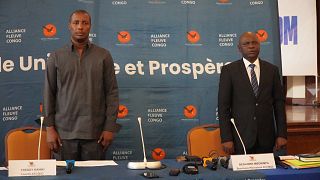Democratic Republic Of Congo
In the Democratic Republic of Congo, makala is an essential part of life.
Ninety-five per cent of the population uses this type of charcoal for cooking.
It is also one of the main causes of deforestation.
In Kisangani, in the north of country, a women's association is producing green charcoal from sawmill waste.
An environmental and social project launched by CIFOR, an international scientific organization dedicated to the research and protection of the forest and financed by the European Union.
"I've been working since 2002 but I was not getting by. Since the FORETS project trained us, with the waste from the sawmill, we can send our children to school and eat. Before, it was more difficult", says Otoke Fatuma, president of the local women's association.
The technique to produce makala is to pile up pieces of wood, cover them with green leaves, then with a thick layer of soil. The fire is lit inside, and the carbonization process begins. Adding elements such as a chimney and side vents improve profitability and efficiency; from 40 to 50% of "unburnt" wood down to 3 to 4%. The carbonization time is also reduced.
Scientists are now looking at ways to improve this technique even further, in particular to protect workers from toxic gases when they are defueling.
An average family consumes 150 kg of makala per month, which means a budget of 10 to 18 dollars, when monthly incomes in DRC vary between 50 and 100 dollars.












02:05
In Zimbabwe, metal scrap collecting is reducing environmental pollution
01:30
Macron sparks global push to protect oceans
01:06
Experts warn of an increase in Glacier-related risks from climate change
01:50
Sierra Leone: popular chimpanzee sanctuary under threat from encroachment
01:45
Kenya's rhinos get their ears notched for tracking and protection
Go to video
Endurance athlete marks 'Jaws' anniversary with swim to change shark narrative